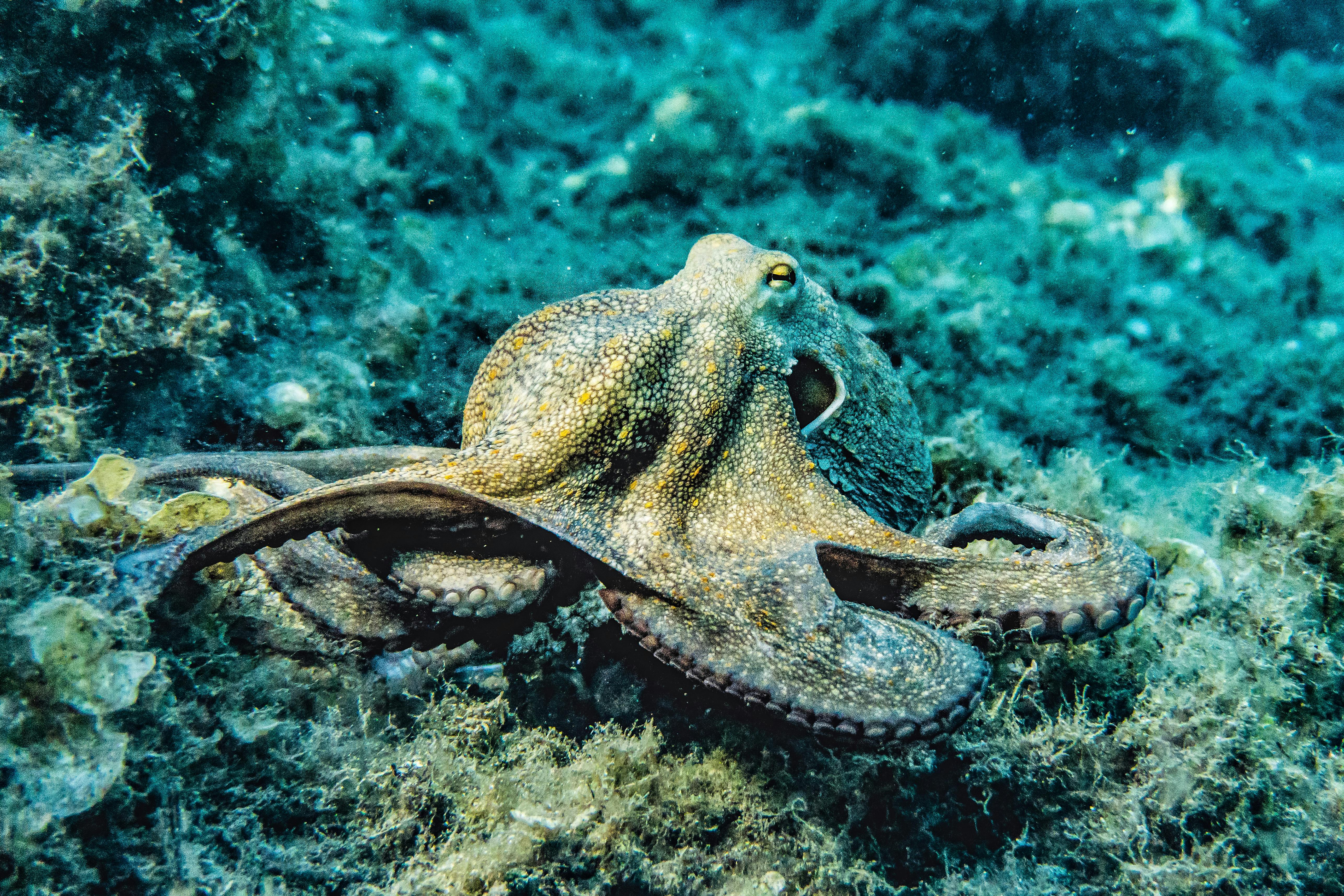Decoding the Secrets of the Intelligent Octopus
Dive into the fascinating world of octopuses, the intelligent, invertebrate denizens of the deep sea. Unravel the mysteries of their advanced cognitive abilities and unique physical attributes that set them apart in the animal kingdom. The octopus, belonging to the class Cephalopoda and the order Octopoda, has long been an object of fascination and intrigue. While their initial depiction in Greek mythology as sea monsters may seem exaggerated, it underscores their unique and somewhat alien characteristics. The octopus boasts an array of impressive features, such as three hearts, blue blood, and the ability to regenerate lost limbs, which have baffled scientists for centuries. Their astonishing ability to change color and texture almost instantaneously has made them masters of camouflage in their marine environments.

The Octopus Intelligence: A New Perspective
Recent studies have revealed that octopuses are incredibly intelligent, exhibiting advanced cognitive abilities usually associated with vertebrates. They have been observed using tools, solving puzzles, and even escaping from their enclosures in laboratories and aquariums, indicating a level of problem-solving skills that is rare among invertebrates. Notably, their intelligence appears to be spread throughout their bodies, as two-thirds of their neurons are located in their arms, allowing them to touch, taste, and manipulate their environment independently of their central brain.
The Octopus Market: Pets, Food, and More
While the octopus is a popular culinary delicacy in many cultures, it has also entered the pet market, especially for hobbyist aquarium keepers. However, keeping an octopus as a pet requires a high level of commitment and expertise due to their specific habitat needs and their intelligence. On the commercial side, the price range varies widely, with common species costing around $30 to $100, while rarer, more exotic species can fetch up to thousands of dollars. The octopus market’s overall impact is significant, influencing various sectors like food, pet trade, and even influencing scientific research and environmental policies.
The Future of Octopuses: Conservation and Climate Change
Octopuses have proven to be resilient creatures, adapting to various marine habitats. However, they are not immune to the threats posed by climate change and overfishing. Rising ocean temperatures, acidification, and habitat destruction pose severe challenges to their survival. The conservation of these intelligent creatures is crucial, not just for maintaining biodiversity but also for preserving a valuable resource for scientific research.
The Octopus, A Marvel of Nature
The octopus, with its remarkable intelligence and unique physical attributes, continues to captivate the human imagination. As we learn more about these incredible creatures, it becomes increasingly clear that they are not merely the stuff of ancient sea legends, but rather a marvel of the natural world. Their survival and well-being are intrinsically linked with our own, reminding us of the importance of conservation and responsible human interaction with the animal kingdom.




